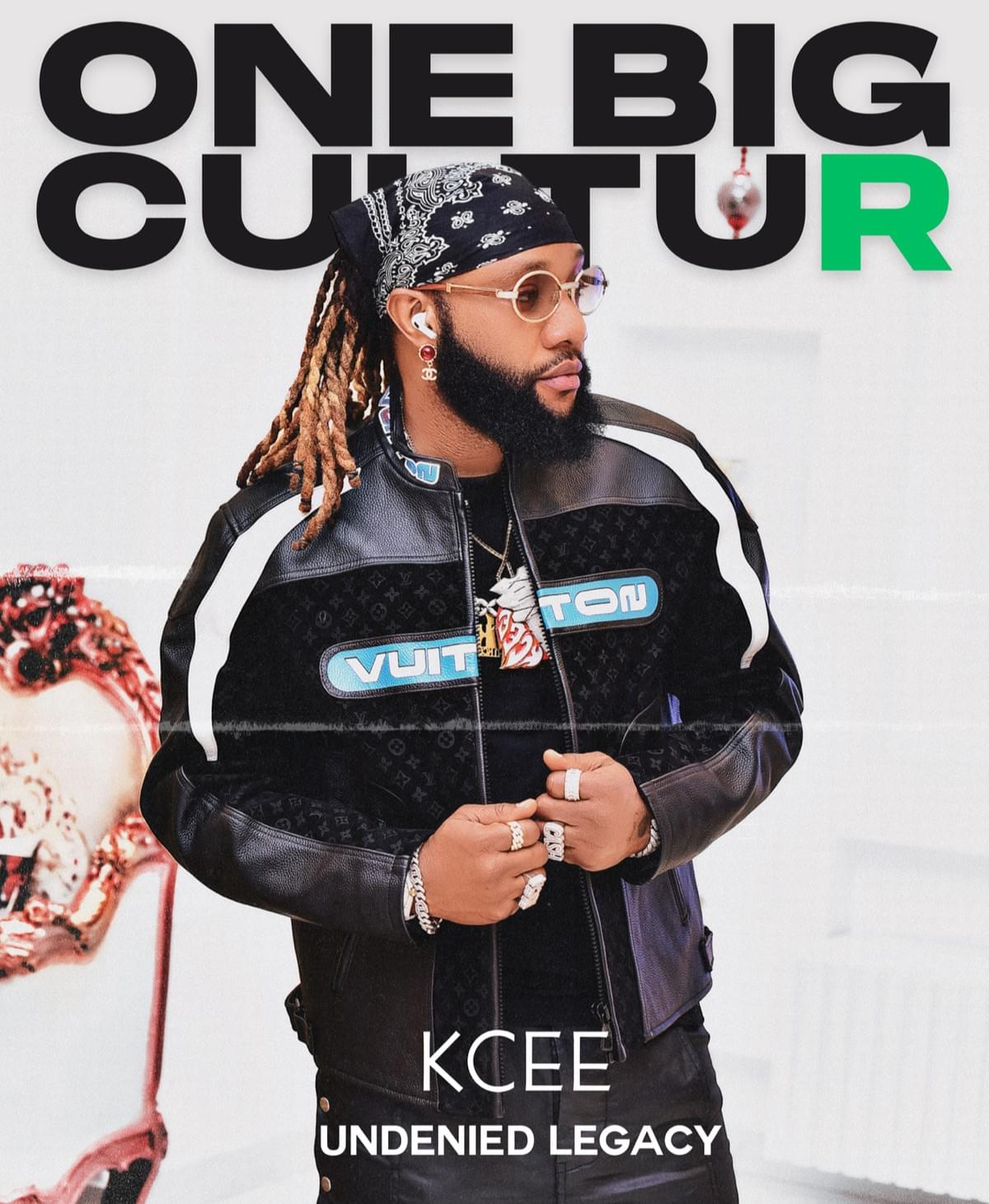
Published by Reynolds Mark
For a quarter of a century, Kcee has defied industry norms, transitioning from gospel to hip hop, afropop, and now a groundbreaking fusion of highlife and amapiano. Hailing from Ajegunle a hub of music influence, Kcee's early exposure to his father's record store and the neighborhood's reggae and dancehall scene and singing at church groomed his taste. As one half of the 90s duo KC Presh, he initially explored gospel before transitioning to afropop and hip hop. By the start of his early 30s, Kcee kicked off his solo career and scored his first hit solo mainstream success with "Limpopo" in 2013.
Kcee's longevity and ability to evolve with the times makes him a stellar artist. His 2020 gospel album, "Cultural Praise," showcased his range, and his recent "Ojapiano" single has reinvigorated interest in highlife music. A true pioneer, Kcee's enduring success is a rare feat.
Reynolds: Straight to the first one, with over two decades in the industry, how did you approach Mr. Versatile differently from your previous projects and what inspired the new album?
Kcee: I actually thought of being 25 years in the business, so I almost wanted to have a concert and stuff like that to celebrate my 25 years in the industry. And I felt like that’s not going to be like what I would love to do. So I now started thinking of having a project, a body of work. I decided to put the body of work together to celebrate myself and also to express the journey, you know? So it’s just that 25 years in the game that inspired me and the album.
I now told myself, "Okay, I have been very versatile with my sound. You know, from day one, I’ve been very versatile." So I decided to name the project Mr. Versatile and also express that in the project. I was able to make sure I touched a whole lot of different genres of sounds in the project. So, if you listen to it, you will hear my roots. My roots are reggae dancehall. I started with dancehall in Ajegunle, in the ghetto, so I have about two dancehall songs. Those are my favorite songs on the album. You know, I had the reggae feel also. Then I also have my highlife feel, the pop feel, the R&B feel everything, you know? So, I’m that guy that is very versatile.
So it’s just a way of me expressing it and letting the world know at this time that attention is on Afrobeat, I’m going to let the world know who Kcee is. That is Mr. Versatile. And that’s what the body of work is saying.
Reynolds: Lovely, bro, My next question would be what inspired the team and the message behind the album, Mr. Versatile? How did your personal experience influence the album?
Kcee:Okay, so most of the people I worked with both the team, the producers, and some of the people who co-wrote the songs with me it’s just that I’m not that guy who just jumps into the studio and starts recording. For me, it was a whole movement. This is what I want. I made sure I told everybody, "This is what I want." Even when I was listening to my album, we had back and forths. Everybody was like, "This is how it should go." I’m like, "No, I’m an OG. I have a lot of experience, and I want to put it into my listening." This is how I want it. I don’t want the normal, traditional way of doing it. And this is it.
Even this morning, the whole team was saying, "You’ve given birth to a whole new vibe." The whole way they think about listening has changed. Like, they need to put energy into it. I was like, you can’t have a listening party where people come and leave the premises bored. How do I mean bored? Most of your new songs, they’re hearing them for the first time. They probably don’t know how the rhythm and the beat go. They don’t know how to bounce or dance to it. You can’t expect them to be excited and start jumping, right?
So after giving them that experience, you should give them the experience of who they know the person who made them come out to see you. And we argued about that over and over, and I won. After the experience, they were like, "No, we believe you now. You know what you're saying."
So for me, bringing the whole team together, I was making sure I told them what I want and who I am.
Reynolds: why is that?
Kcee: Let me be honest to you, sometimes we conceive ideas and inspirations. Right. And when you bring it out to your team, sometimes some of these teams. I'm speaking like an OG right now. Some of the team members have different ways of reasoning or thinking. I'm not saying they are wrong or right, they have their own way. But the truth is, if God gives you an idea, he gives it to you. He doesn't give it to two people, so your ability to sell it to other people and convince them is very important. So when you allow them to influence that idea, you might lose that originality that God has placed in your head. So me, I had a lot of fights back and forth in this project trying to convince everybody, producers, this is what I want, this is how I want it. But right now, they all understand that this man knows what we wants. Why a lot of young people don't succeed as much as they should, is because they don't have the ability to listen to the innermost part of them, listen to the idea that God gave them. That is what I learnt about myself, I listened and I executed it with my team by sharing it with them, we pulled heads together and now we are winning, it's not my win, it's our win.
Reynolds: I can imagine, Thats some heavy OG footprints in there.
So my next question would be about ajegunle, the ajegunle Influence.
So growing up in AJ bro, a melting spot for dancehall and reggae, how did that environment shape your musical taste and style?
Kcee: So, that's the starting point of my career. And, you know, anybody who knows the history, in 1996 and 1997, Ajegunle was topping the music scene in Nigeria. At that time, it was African China, Marvelous Benji, and a whole lot of us back in Nigeria doing dancehall music. That was what was ruling the Nigerian music scene. I grew up in that era and in that place. My father was a DJ, selling records back then in Ajegunle. You understand? So, that dancehall energy was what I grew up with, and that’s what I was ready to take to the world.
But by the time I entered the industry professionally, that energy had faded, and a new era had emerged. Idris came in and sold Afrobeat to the new generation. And as a smart guy and a versatile one, I was able to blend into the new Afro sound and started going with it.
So, that dancehall sound was my root, and it helped me because those were the little beginnings that built the foundation of my music. I still have it inside me, and I told myself I was going to express it in this project and I did. Even with my next project, I’m still going to do some dancehall because, at this point in my career, I’m not trying to impress anybody. I’m just trying to enjoy myself and express myself. So, I think I will always give that part of me the dancehall.
That really helped me, you know, in my growth.
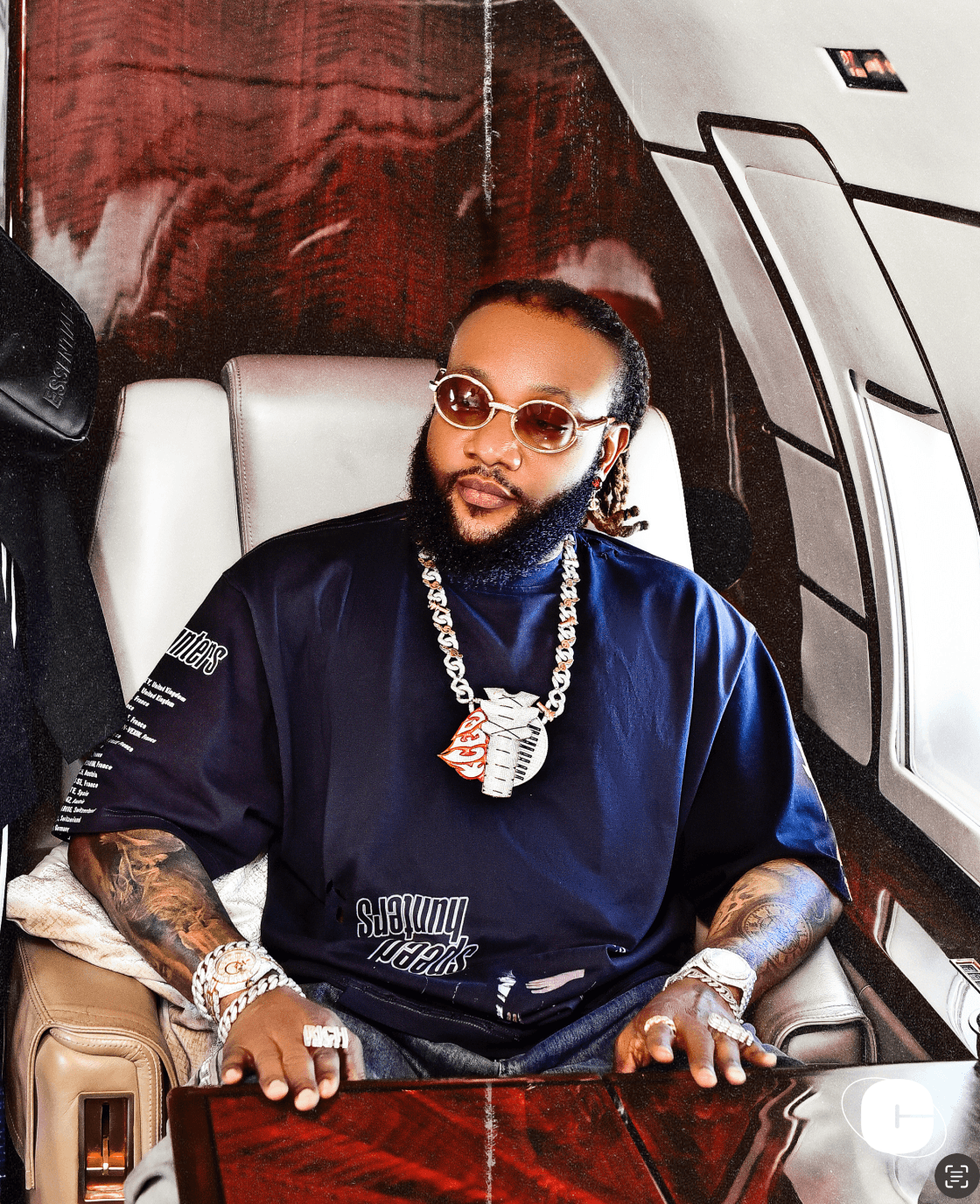
Reynolds: Nice, nice as a touch of fan base or touch of like background is always important in the group. Important?
Kcee: Yes. Very important.
Reynolds: What prompted the decision to transition from a duo to a solo artist? How did that shift impact your creative process and your career trajectory? Because it was a new form, it was a new form of points in your career. So how did that, how was that for you?
Kcee: Well, sometimes I can't. I'll be honest. I can't tell you that I saw that coming. I didn't know there was a point we're going to be apart or break up.
And in fact, at that point, if you tell me I should leave my partner, then I'll fight you. I'll be like, you're my enemy. You know, I never because I believe so much in anything I believe in. So I believe so much in the group, you know. But sometimes God has his own way, you know. And how we went our separate ways was just a little argument between us. And we felt like, okay, you know what? Let's do solo projects.
By the time we do solo projects, we'll come back and we'll continue the group. And that was it. And by the time we started doing solo projects, a lot of people, a lot of fans and the industry gave a lot of respect and credit to my partner. They gave him all the hype and they made me feel like I didn't know what I was doing.
So that made me start working times three, but they didn't know they were building me. You know, when people tell you you can't do it and you want to go all out to prove to them? That was where I found myself, everybody felt like you are not the guy. This is the guy. And they were saying it to my face. Even some of my siblings, one of my siblings’s friends told me to my face, "Now this guy is the guy. He has a better voice, not you." You know, when people tell you that kind of thing, and you believe in yourself, you want to prove them.
So that was the journey. So at that point, I started fighting for myself. I'm like, "No, I'm going to prove these people wrong." So I never slept. I kept working day and night. Every day. I was in the studio, boom, boom. Less than two years ago, I got Limpopo, I got Pullover, I got all these records, you know, and everybody was like, "Wait a minute. I thought this was the guy, not this guy." But why is he this guy? You know what I mean? So sometimes when the world says you can't, yeah, you can either say you can or cannot do it. But I told myself, if I look at myself in the mirror, I'm like, "I can do it. I know what I have." So that's it.
I never saw us splitting up, but as God may have it, we did, and I took advantage of it. God has a reason for everything after all and I am still standing.
Reynolds: Heavy. God has a reason for everything. At the end of the day, sure, God has a purpose for us all.
So I'm going to go into longevity and relevance. What do you attribute your longevity in the music industry to, and how do you stay relevant amidst the changing trends and the new generation of artists?
Kcee: That's deep and special. Well, it's hunger for me. The hunger and ability to stay true to myself.
You know, one thing you should, I think everybody should learn, is to tell themselves the truth. You know, any day you start lying to yourself, that means you're going to get it wrong. For me, I always want to tell myself the truth, and at every point, I've been focused and know my weaknesses. So where I know I don't have strength, I go and get it and learn. I humble myself to either learn or acquire. You know, the places I know I have strength, I allow it, so I've been able to be true to myself. That's one major thing. And also, the hunger for success keeps burning in me every day.
Even right now. I just dropped an album. I wish my team were here. I'm already working on my next album right now, like I have almost six songs recorded already, and they're like, "We need to rest." I'm like, "I don't want to rest." The title of my album, “I have it already”. My next album, “I have it”. So that has been the case. People don't know or people don't see my next single after this album. I have it already. I'm shooting the video soon, like the next single after the album, I have it ready…
So that has been the guy these people don't know. I work too much, and it hurts sometimes when people want to give my credit to some people, you know, because I allow some people to come into my space to create music with me or come around me.
And when we make success, you see them bringing out their head. "Hey, Na me write am, Yeah, when you want to announce yourself, when you want to let people know you are the one doing this, that means you are not the guy. Know when your work speaks for yourself. That shows you are the guy. So I have not been that guy that always wants to come and tell you, "I can't do this'' or "I want to do no." Even if you say you are the one doing it, I'll be like, "I allow you to enjoy it." But at the end of the day, people, even if you take time and years, people will understand who the guy is. Like, right now, everybody knows Kcee is the guy because all the people that have said "Na me, Na me," are sleeping right now, and I'm standing. You understand? So I have proven to the world that Kcee's the guy. My hunger is inside. Nobody can quench it. Nobody can take it. No matter what you write. People have written on social media, "Go back to your village, go and sell clothes." But those people have now converted to my fans. I see them writing on my page every day. "I'm sorry. I've underrated you. I have said a lot of shit about you, but today I believe you are the guy." So I have strongly held on to what I believe inside and always put it out, you know, without talking, without explanation. Like I said, if there is no evidence, you are just wasting time. So the evidence given over the years has shown that nobody can quench the fire inside. I have something special. I have the ears for hit records. If not for anything. You see that one? I have it. Even if you want to write for me, if you write ten songs, I know what to pick. Even if I want to write for myself, I know what to pick. That's why each time I strike, even if I strike five, one must enter. That's why I've been able to stay relevant for 25 years. Because each time I strike, if I strike ten or more, no worry. One must enter because I have the ear for a hit record.
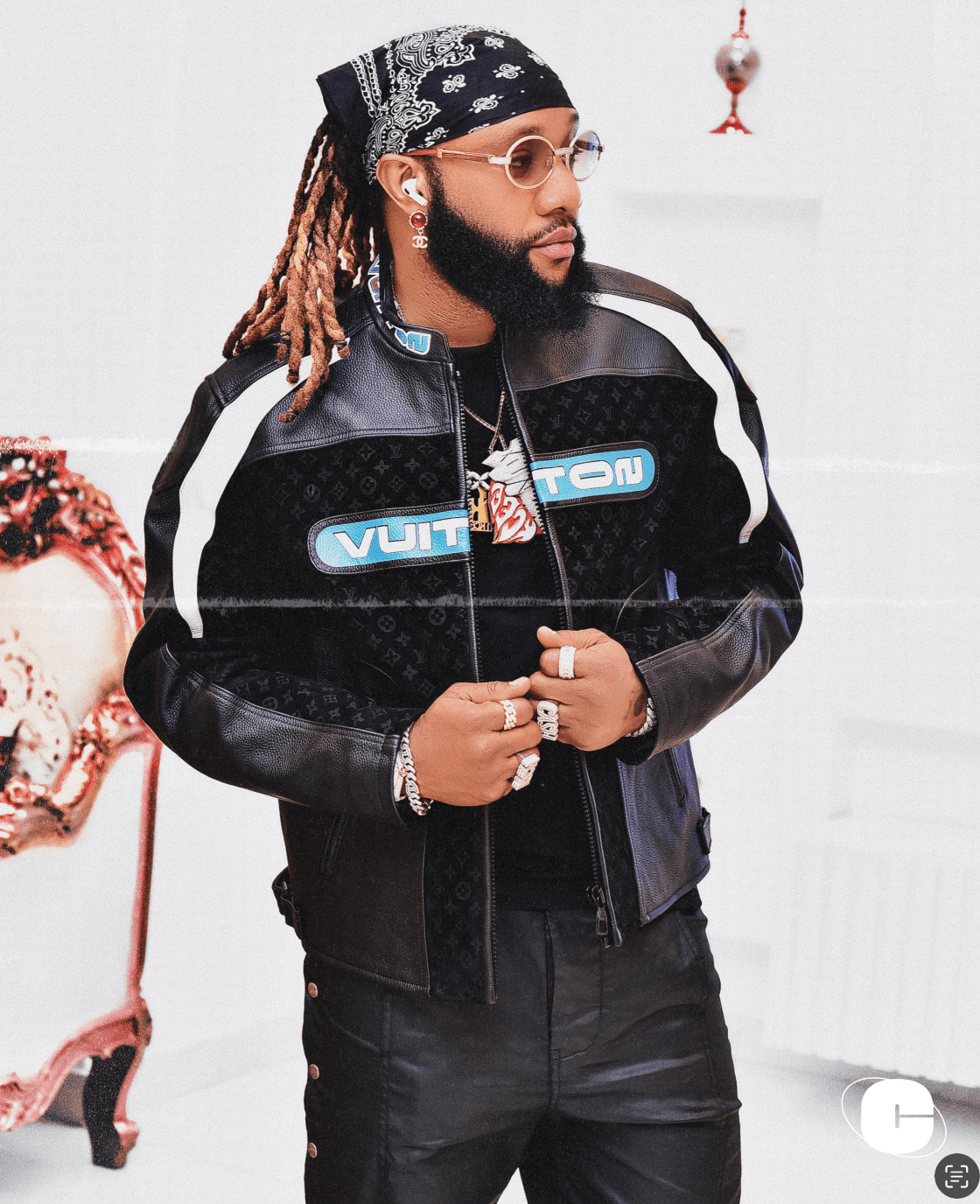
Reynolds: Bro, you deserve your flowers, Heavy, heavy brother. You deserve it. Some solid information. Very solid.
So ojapiano, you successfully revived interest in high life music. How important is it preserving Nigerian musical heritage to you? And what role do you see yourself playing in this?
Kcee: Okay, so that's a big one. I love that question. And that's a special thing. It's dear to my heart. So in 2017, I took a decision to uphold our heritage and our music and our sound, our culture. So in 2017, I went straight to the East. I told myself I stayed in the East for some time. I'm like, "Hey, I want to start doing cultural sound" because I know that this sound is rich and is quality, and we have a lot in this cultural sound.
When I mean cultural sound, not just the Igbo sound, even the Yoruba sound, the gong gong, a lot of things, a lot of instruments that we can sell to the world.
So the makossa people sold it to us, so we bought it. We didn't hear what they were saying, and we ate it. I like it, and that still sounds original. The reggae music, they came, they saw something. I'm like, let me go back to the room.
So in 2017, I made that decision. I started paying attention to it. So "OjaPiano" wasn't a fluke like some people were thinking, or some people were trying to take the credit or give the credit to someone else. No, I was on that path for years. I 've been trying it since 2018. I tried it with two producers to play Oja on a pop beat. They couldn't get it right because they were not in the same frequency. You know, the guy that got it right, the producer Jason. In fact, even when I was telling him, he was arguing, he was like, "Are you sure this is going to work?" But at the end of the day, he placed it on Amapiano beat because the Amapiano beat was rocking at the time, and I'm like, "Let's place this Oja on the beat. The boys that did Oja, they came for an event. They never knew they were going to the studio, and I took them from my house. I'm like, hey, I'm taking you guys to my studio. I want to try something. That was my word. I took them to the studio. I was like, do this, do that, do this, and they did it. Producer. Can you try this, try that, try this. He did it. If I was, if I, if I could, if I could blow the Oja or did it instruct the production, I would have done it myself, I couldn't. But I have something here and even my team, I told them I'm like, let's achieve this. And that was it. We did it. It worked. Everybody started dancing. I was in tears. Me and Skibii were in the session. Even Skibii was a co-writer on that song.
We went crazy, crazy when we got the beat. In fact, we danced the beat for like two days before we could play a voice. We knew we got something unique, you know? So at this point I'm not stopping there, I have carried it on my shoulder to sell the African sound to a global stage. How did one republic hear the sound? They messaged me. They were like, oh, they are hearing this sound. They are with the TikTok owners in America, the owners of TikTok, and they told them that it's this sound in Africa bursting everywhere.
That was how one Republic DM'd me like, hey, we heard this is hard. What is it called? I told him they were like, hey, we need to jump on a remix and we need to even I'm even doing a song with them now on their own project, love.
Trust me, I'm saying it for the first time. I wasn't supposed to let that out. But you know, I'm going to be on the record. And they heard it. They loved it. And that is intentional selling African sound. So we're not even stopping there. I have a lot of other people from India, from other parts of the world that have been DMing me, trying to get what is that sound? You know? So I think we have a lot to sell to the world.
Let's not be distracted. Let's not be. Just focus. For me, I'm committed to project and sell the cultural heritage at this time. Yes, we're going to dilute it with pop so that it can travel more. But for me, that's what I'm, that's where I'm sitting right now. I just want to sell more of African heritage and especially my Igbo sound that I know very well. I want to sell it more to the world.
Reynolds: Nice bro. I am enjoying this, because I am igbo too, my mom is from Anambra
Kcee: That means we are brothers then, I am an Anambra man
Reynolds: Yes, My Bro
So for your successful career spanning towards decades. What do you hope your legacy will be in the music industry? Do You hope your legacy will be remembered in the music industry?
Kcee: I think I have been able to prove that music has no time limit king sunny ade is still dancing on stage so what are we talking about ?
I have proved to the generations before me and after me, that we can do this. Originality is also key. So how did I get to Limpopo. I went to America to feature Beyonce, I went Well to America to look for a collaboration and couldn't get her, but I got through to jay-z ’s manager, they invited me to jay-z ‘s club in new York called 4040. I paid 10,000$ for a session with one of my big friend from Nigeria he also wanted to invest into me then. We went together, we took a whole session, we couldn't find jay-z's manager, we spoke to him on the phone later on, They said, "Beyonce, we can't see her." Long story short, we left America. This was in 2012, and I came back to Nigeria. Then the guy introduced me to Trey Songz' manager and Chris Brown's manager. Now they said I could do a record with those two, and when I go back to Nigeria, I told my producer, "I want to do a record that has an R&B feel, soul, and Afrobeat because I want to have international artists on the record."
That was what I told them in the studio, and before we started playing those strings in the club, in the studio, we had in our heart that "o o o o". Those were trying to put R&B, and we had the percussion of Afrobeat in it, and that gave birth to a whole new sound. And I was singing like, "Baby, please give me tonight." Like I was trying to sing like R&B, and I see how the local energy "Oya Limpopo baby made me go Limpopo." So that gave birth to a new sound. Right. And we dropped it. It was on fire. Everybody started going crazy. A lot of people started copying the sound, and all that. That is a footprint. That's originality. I did it with Ojapiano again, and after lockdown, I did somebody that had been doing pop. I went from point A to Z. I did a cultural praise like a gospel song. Ten minutes. Nobody believed that was going to be possible. Everybody was like, "Who wants to play ten minutes in this generation? It's too long."
I was like, "Leave it like that." My distro said, "This is too long. We're not going to release it." I'm not. I say release it like that. And we dropped it. He went crazy. They started dancing it in the strip clubs and in the clubs. Gospel songs with gyration.
Nobody has done it, you understand? So the ability to keep refining and making new sounds is one of my strengths. I like to do something different. When everybody's going this way, I think too much. I want to do this. That's something I'm thinking about now. I can't wait to get in the studio next week. And if I give you a hint, I can give you a hint after this. Then when it happens, you will say, "Kcee told me this before." Another person will tell you I tried. It dies, I can't sleep.
I got the inspiration to try a local sound, a local instrument with my piano. I can see, I can see the whole Asia dancing or emerging, and I bring it to reality, you know? So those are my strengths. And I think the industry will never forget me. By the time I'm done with all of this, they'll be like, "Okay, he brought up this sound, he brought up that sound. He brought up a piano. I gave birth to Ojapiano. It's a genre
Go to Spotify. Now there is a genre there. It's called Afro piano. My picture is here. They call it Afro piano. My picture is standing there, you know. So that's like creating a whole genre. And I'm proud of myself.
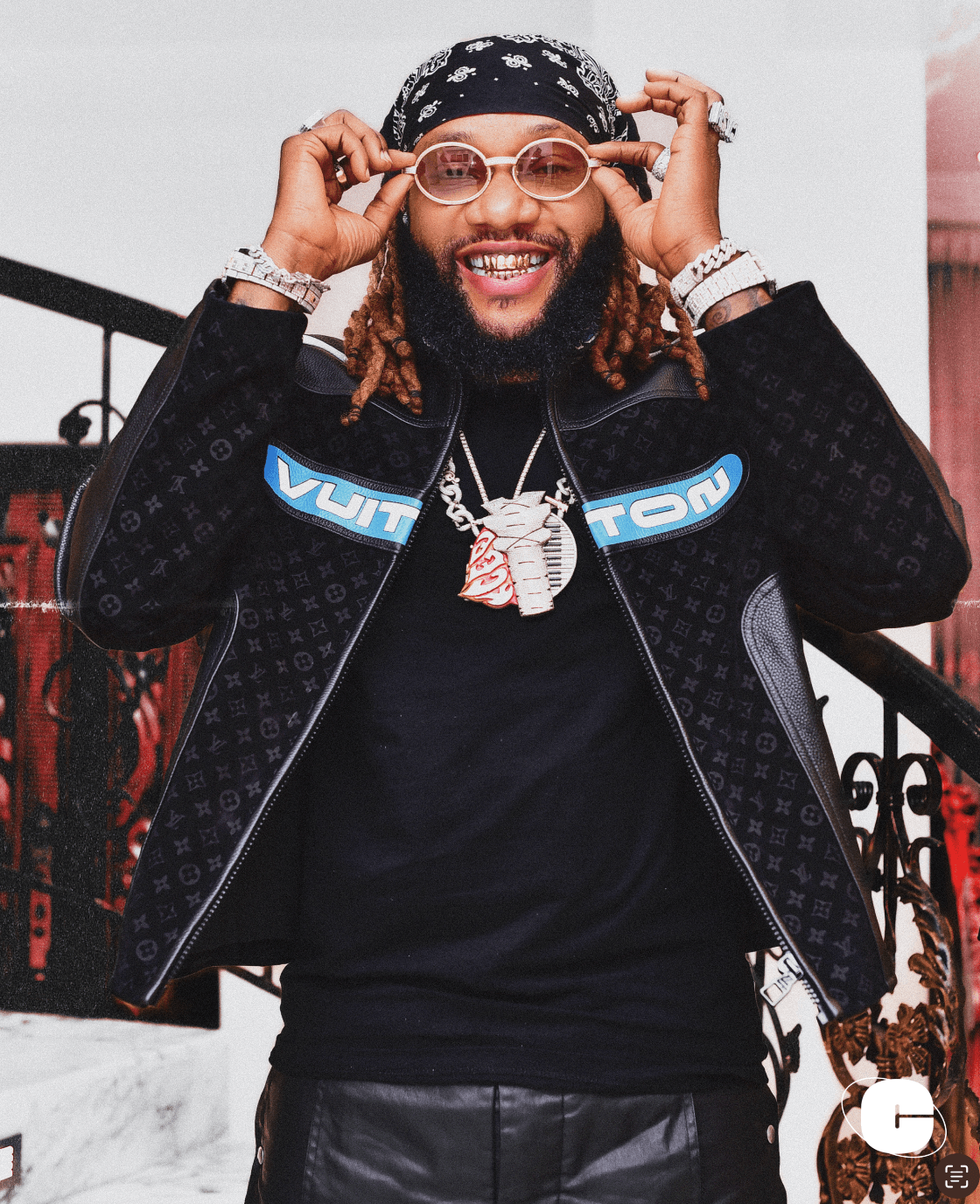
Reynolds: Thank you so much. That's a question I skipped. You've also proven to be a successful businessman. How has your business acumen contributed to your overall success?
Kcee: I like to be straight. I like to be honest. So, I have a lot of businesses aside from music. I have a hotel, a water factory, a water plant. My wife is also involved in some other businesses and investments. But there’s nothing like music for me, right? Most of those businesses were distracting me and making me not pay attention to my music. And the music has brought me more money than all of them, till today.
So, I decided to hand over everything to my wife. She's a genius, a big support system, very focused, very supportive, and prayerful. Big shout out to her. I left all my businesses for her she’s running it all with over 60 staff. She pays everybody. I don’t even know how she handles everything.
So, I’m very focused on my music now. I think that’s why I’m doing better. When I was distracted with those businesses, I wasn’t as focused as I am right now on my music.
Now, it's only music that's in my head. I also have an Uber company in Germany because my family are German. My wife is also running that, I have a fleet of cars doing Uber in Germany. So, when I'm sleeping, I'm still making some euros. My wife is running all that. I'm just focused on music.
Reynolds: That's heavy bro. Shout out to the wifey.
Thank you so much for your time today, man. I've really gotten a lot of useful information that I didn't even know about you, that I've literally gotten to know you better, So the world needs to know and they need to hear and see how much of an influence, you've put together to make this culture strong. Because you're a catalyst, All you have put in to add to the culture, because in the next ten years, the story is still going to be played So congratulations again on the work of art. Thank you. You deserve all the flowers you need.
Kcee: Thank you, I appreciate it, brother. I enjoyed this, it was a wonderful experience. You know, chatting with you, I feel like I was talking to my guy.
As our conversation comes to a close, it is clear that Kcee's impact on the music industry extends far beyond his own discography.Kcee's impact on music goes beyond his own songs. He's a pioneer who has promoted Nigerian culture, inspired cultural exchange, and paved the way for new artists. His dedication to African music heritage will leave a lasting legacy, inspiring future generations and cementing his place as a true music legend.
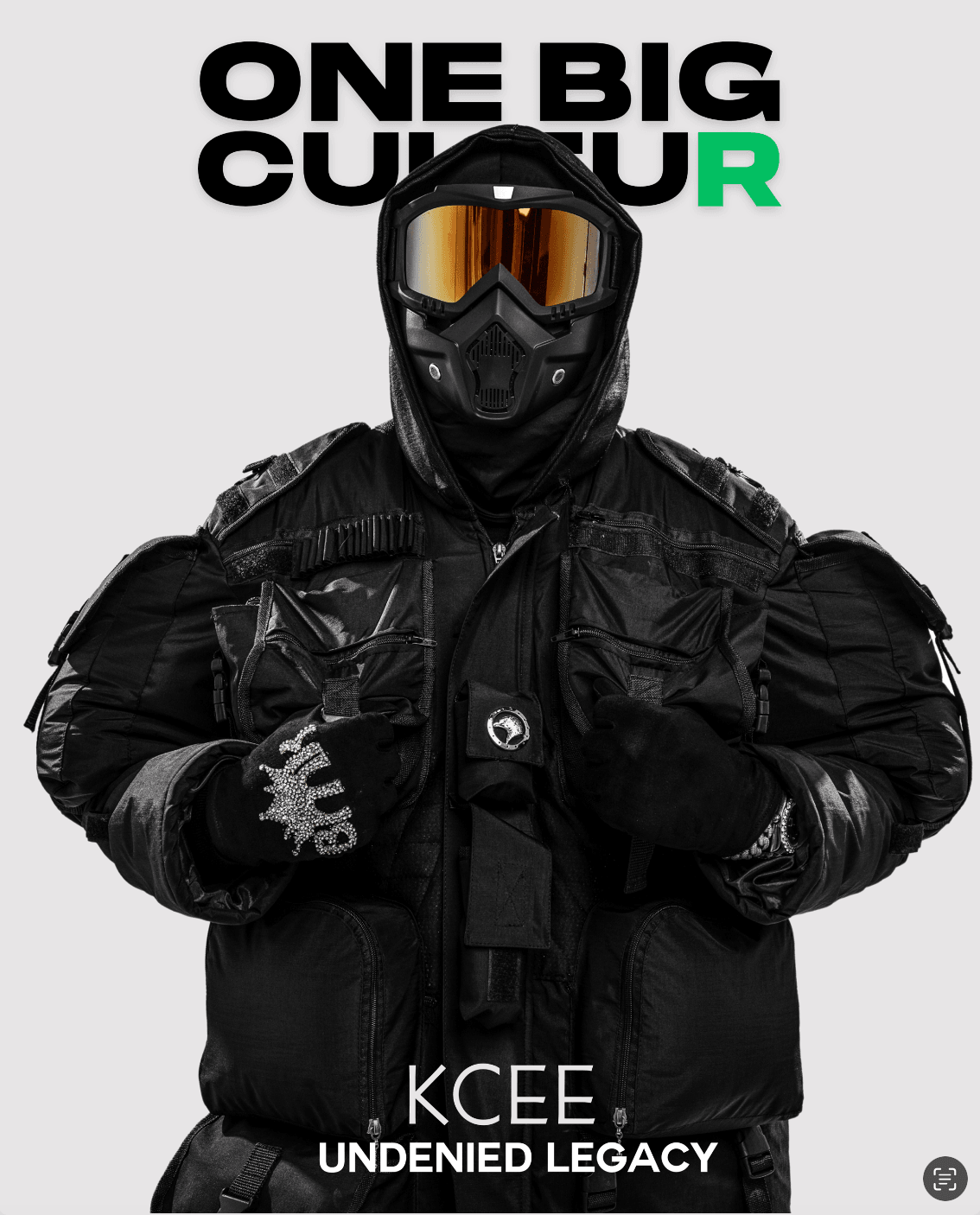
Produced
By Studiomezue
Interviewed / Editor-in-chief
Reynolds Mark
Head of design
Tosan uche
Assistant editor
Walter okosie
Captured
by Onerpm
Co ordinated
Honour Aghedo
